08 de fevereiro de 2026
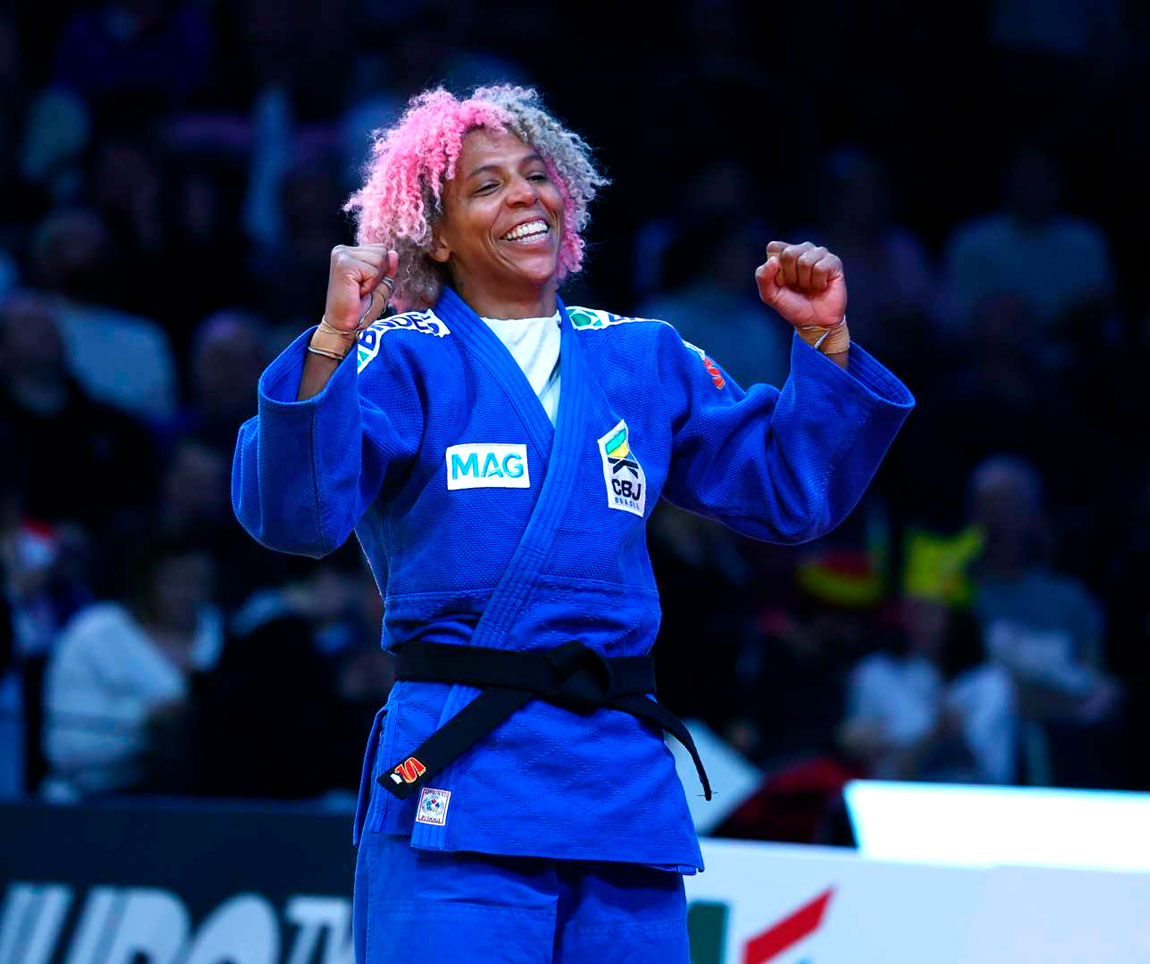
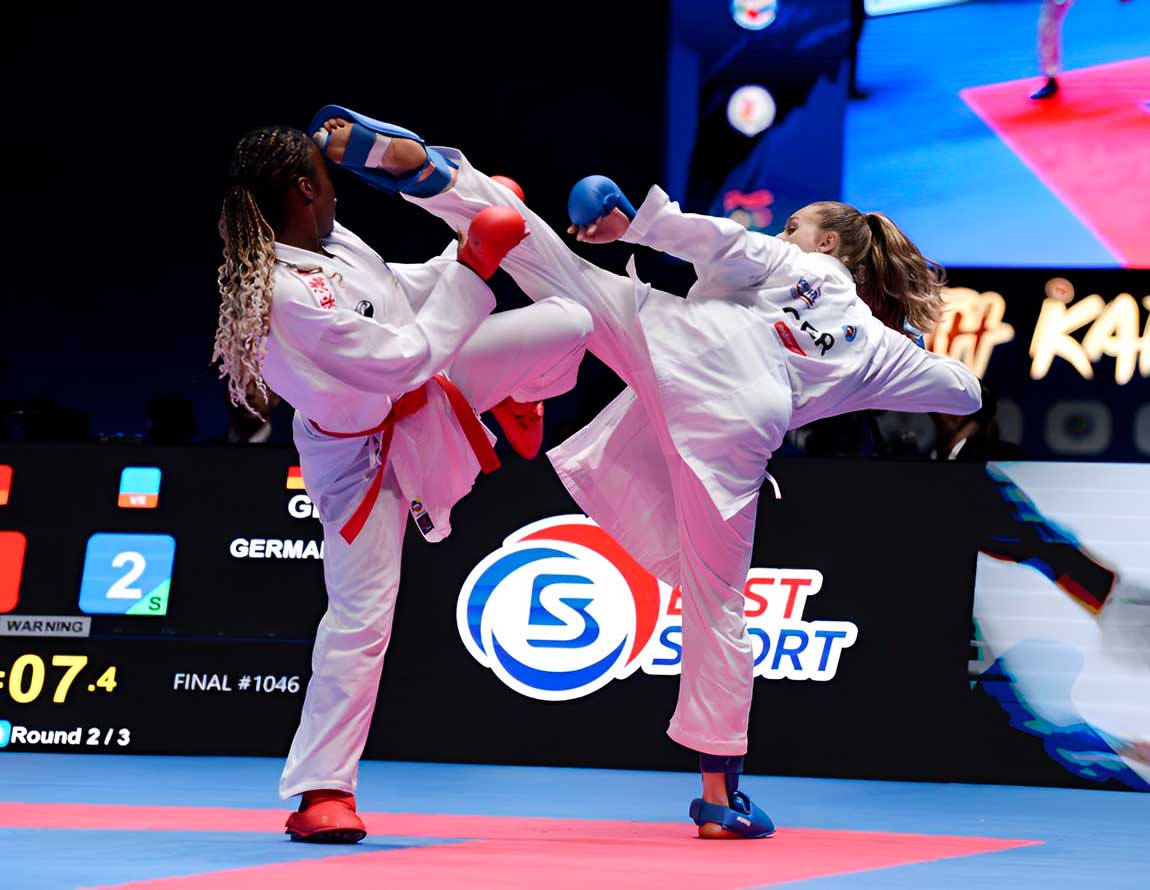 On the tatami, total commitment and dedication; behind the scenes, schemes to cling to power and institutional corruption © WKF
On the tatami, total commitment and dedication; behind the scenes, schemes to cling to power and institutional corruption © WKF
For the second time in a month, Marie Barsacq, France’s Minister of Sports and Culture, appeared before the Senate to address growing allegations of misconduct within the French Karate Federation. The inquiry, led by Senator Michel Savin of Isère, laid bare deep-rooted governance failures inside the organization. Similar issues have surfaced in other national federations across the globe—including Georgia, Senegal, Kosovo, Iran, Mexico, Peru, and Ecuador—suggesting a broader international pattern of mismanagement and blatant disregard for transparency and compliance.
At the heart of these scandals lies a recurring pattern: power concentration, weak oversight, and clear signs of institutionalized corruption. In many cases, longtime leaders remain entrenched in control of their national federations—often without any transparent supervision or democratic accountability.
In France, the National Olympic and Sports Committee refused to recognize Bruno Verfaille as president of the French Karate Federation, citing electoral irregularities and his close ties to Francis Didier—undisputedly the most powerful figure in French karate. Didier also sits on the executive committee of the European Karate Federation and is a longtime ally of Spanish official Antonio Espinós, who has led the World Karate Federation for over 25 years. For decades, Didier has held immense influence at both national and international levels.
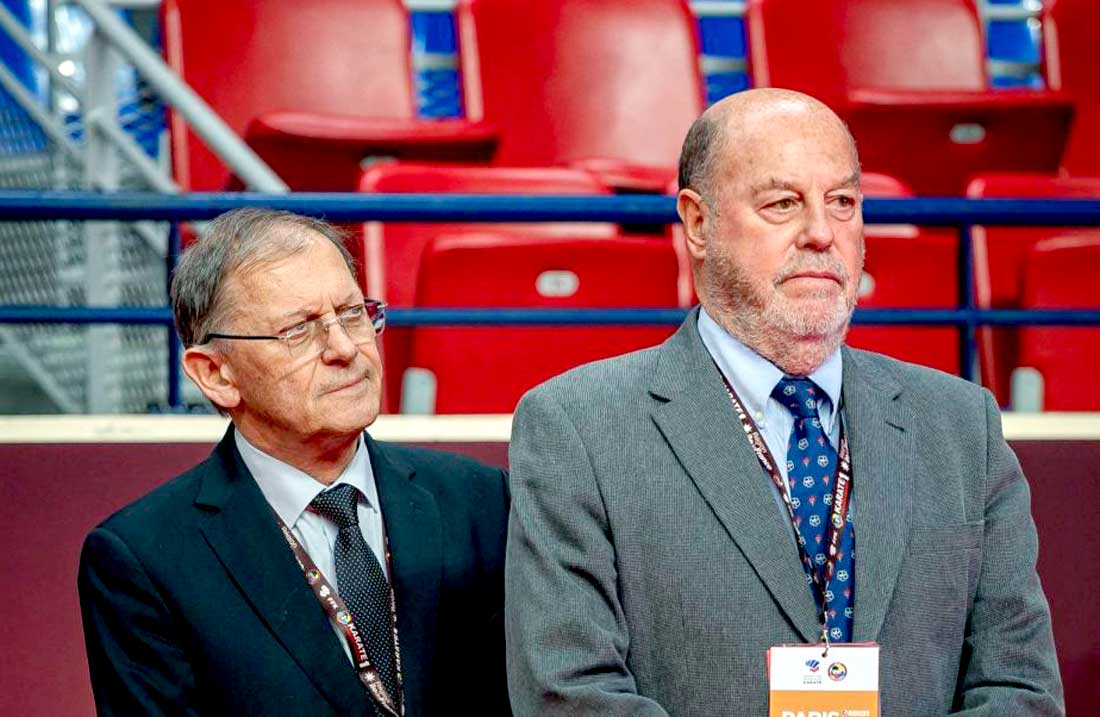
Francis Didier and Antonio Espinós, two of the most powerful figures in global karate leadership © WKF
During the Senate hearings, Minister Marie Barsacq warned that the government might suspend the federation unless urgent governance reforms were enacted. In a later session, she reaffirmed the ministry’s stance, calling the embedded corruption “a serious threat to the integrity of French karate.”
But Francis Didier is just the tip of a much deeper problem. Antonio Espinós, who has presided over both the World and European Karate Federations for more than 25 years, has never faced an open election.
Observers argue that Espinós’s inner circle uses their influence to block reforms, suppress dissent, and consolidate control over national structures across multiple continents.
Espinós became president of the World Karate Federation in 1998 and remains in office to this day, having been reelected multiple times—including a six-year term that began in 2016. His predecessor, Frenchman Jacques Delcourt, led the organization from 1992 to 1998. A central figure in karate history, Delcourt was the founding president of the European Karate Union (EKU) in 1965 and one of the main architects of the World Union of Karate-do Organizations (WUKO) in 1970, which later evolved into the WKF in 1992. Before Delcourt, WUKO was led by Japanese official Ryoichi Sasakawa from 1970 to 1992.
In Mexico, a bitter leadership dispute fractured the national karate federation, culminating in unprecedented public demonstrations. The clash between Samantha Desciderio Olvera and Oscar Godínez Balbás exploded into the streets in February 2025, when athletes and coaches organized large-scale protests across Mexico City. Strategic intersections were blocked, including Camino Street in Santa Teresa and the Insurgentes Sur–San Fernando junction, disrupting Line 1 of the Metrobús.
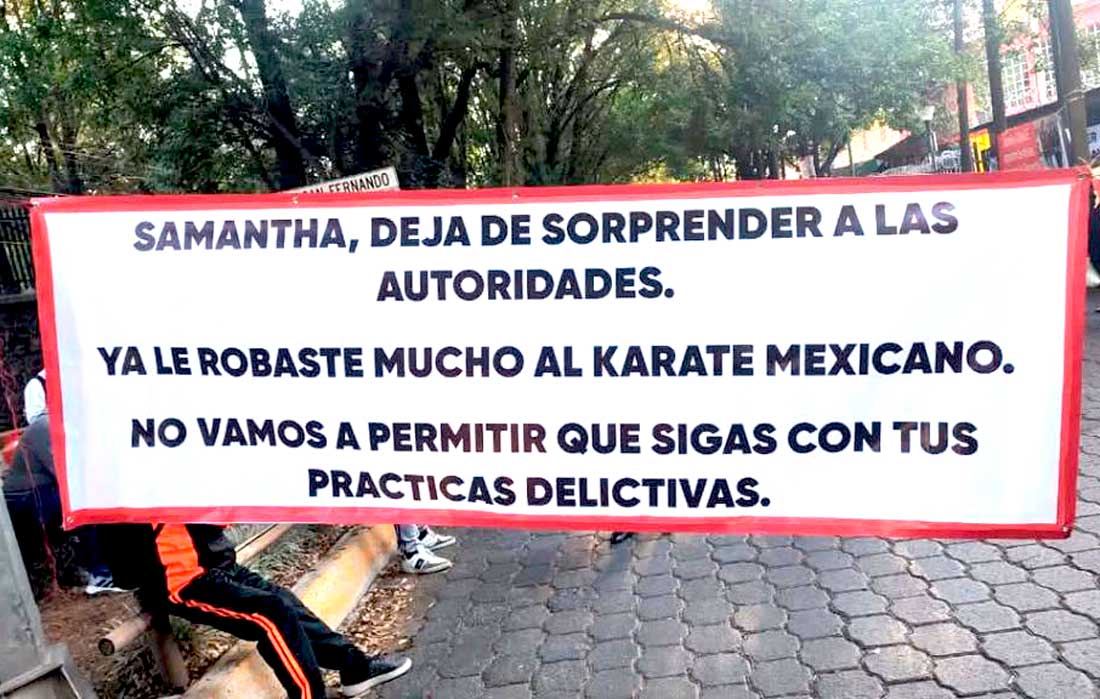
Protesters in Mexico City demonstrate against corruption in the national karate federation © Sportsin
Protesters accused Desciderio of corruption and extortion, demanding her immediate removal. The allegations carried even more weight due to her prominent positions: executive committee member and assistant treasurer of the Pan-American Karate Federation, and since 2022, member of the WKF Executive Committee. A protest banner summed up the public sentiment:
“Samantha, stop deceiving the authorities. You’ve already taken too much from Mexican karate. We won’t let your criminal behavior continue.”
Senegal presents another emblematic case. In 2024, Souleymane Gaye was elected president of the African Karate Federation, ending a 17-year reign by Algerian official Mohamed Tahar Mesbahi. However, Gaye’s close ties to Antonio Espinós—and ongoing scandals within the Senegalese federation—have raised serious concerns.
At a general assembly held on June 30, 2023, federation leaders were accused of misappropriating nearly 10 million CFA francs (around €15,000) in athlete bonuses. Instead of investigating those responsible, the federation suspended the whistleblowers—including Bescaye Diop, president of the Dakar regional league.
Diop filed a formal complaint with Senegal’s National Office for the Fight Against Fraud and Corruption and wrote directly to the Minister of Sports, describing the federation’s leadership as dishonest, corrupt, and driven by personal interests. His intervention led to the recovery of 3.2 million CFA francs, returned to the state by a federation executive in September 2024. However, in April 2025, federation president Mohamed El Mokhtar Diop and three associates avoided jail by posting bail—including 7 million CFA francs in cash and a real estate deed. Investigations revealed that the diverted bonuses had been allocated to non-existent athletes. Since then, the federation’s treasurer has gone missing and remains a fugitive.
A similar situation unfolded in Kosovo, where a wave of arrests in December 2024 targeted key figures within the national karate federation. The detentions were part of a broader anti-corruption operation affecting multiple sports organizations in the country.
In Iran, Hassan Tabatabaei was removed from the presidency of the national karate federation following a court ruling that uncovered severe irregularities in the election process. His position was taken over by Mazdak Soofi, who was appointed directly by the Minister of Sports—without any formal election.
Since then, Soofi has postponed new elections for more than seven months and restructured the federation by appointing close allies to key leadership roles. His actions sparked widespread backlash from the Iranian karate community, with many questioning both the legitimacy of his leadership and the real motivations behind his administration.
From Paris to Dakar, Tehran to Mexico City, karate is facing a global crisis of integrity. With each new scandal, the calls for reform grow louder—but a critical question remains: will the leadership of the World Karate Federation have the courage to act?
For now, the swamp remains untouched. And no one seems willing to drain it.

08 de fevereiro de 2026
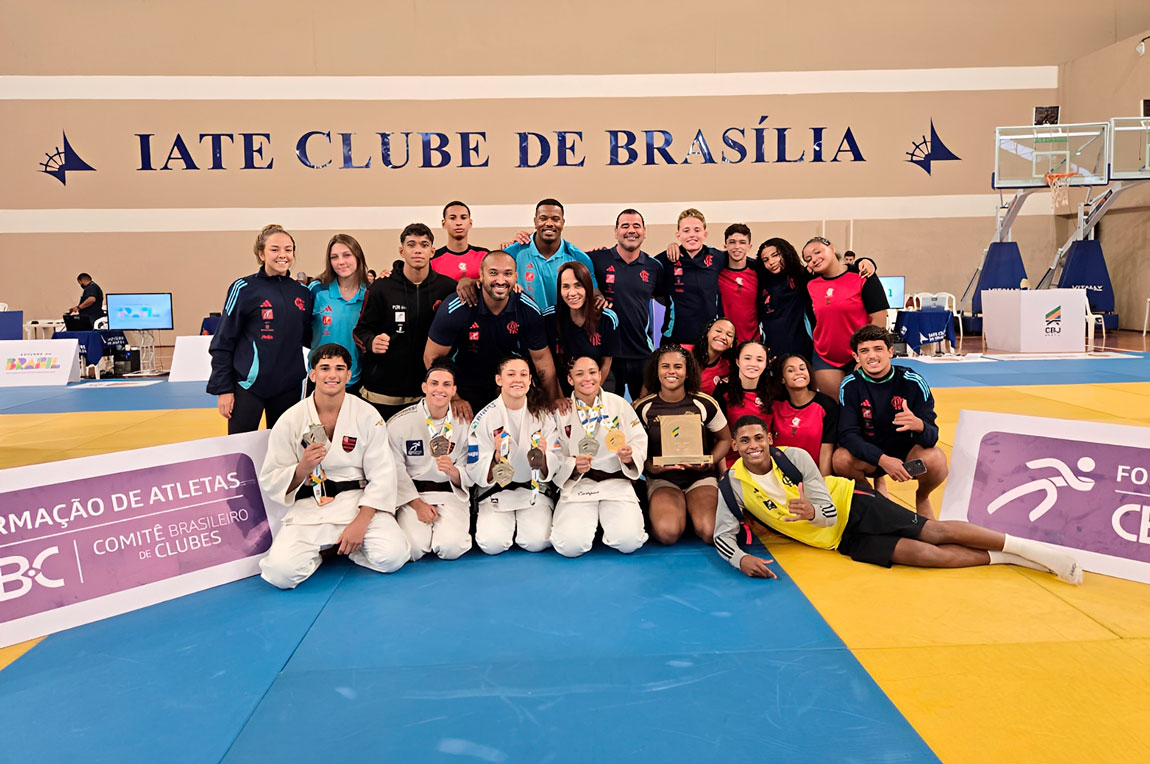
07 de fevereiro de 2026

06 de fevereiro de 2026